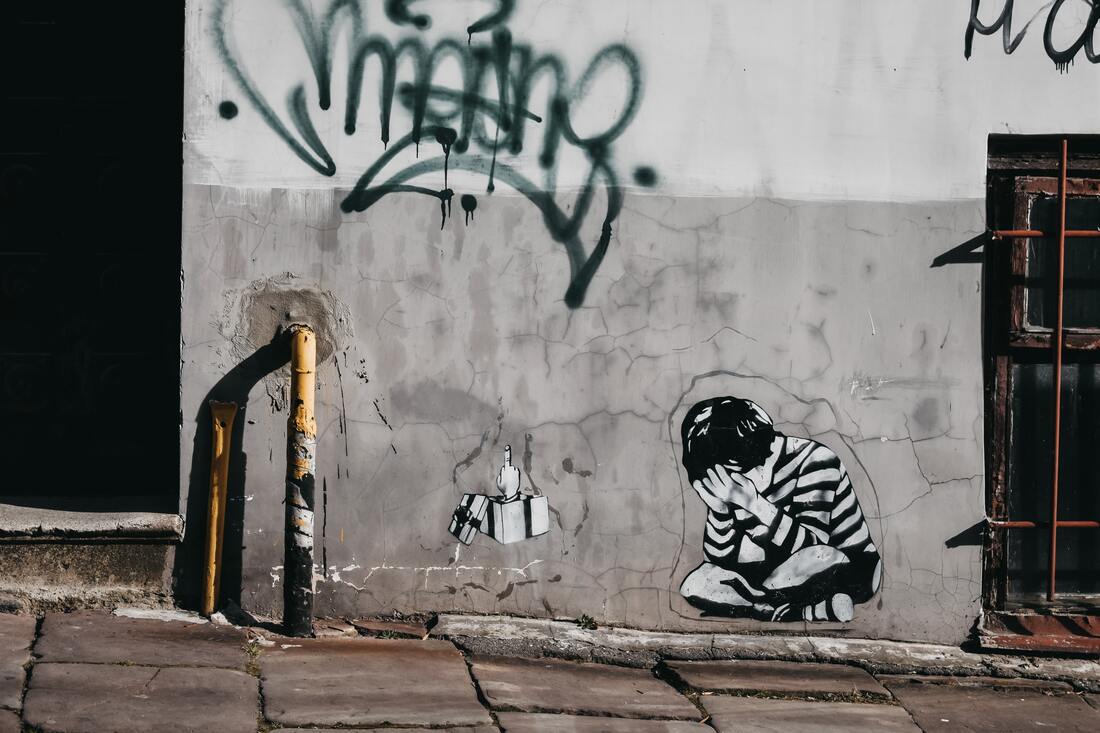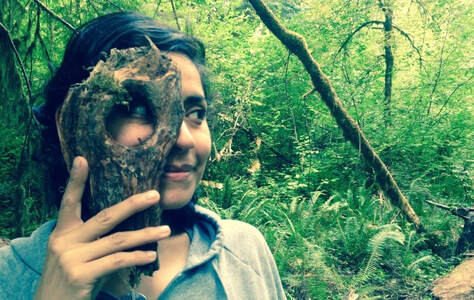|
So, today what I want you to do is open up and let Blackness into your heart, the energy of Black, if it can enter you. --Akilah Oliver I think of Akilah Oliver’s words often. I first encountered Oliver’s work at Naropa University—where I studied her flesh memory: the she said dialogues and listened to her archive as I practiced and wrote/performed into the space of healing ancestral trauma—how to exercise the ghosts that haunt our bodies. As a community member of collective.aporia, and as a poet and artist, I want to document my experience (share this account for the archive) at a Black Lives Matter march in Portland, Oregon, as a way to discuss the notion of healing collective grief. This continues to be at the forefront of my own artistic (activist) practice as we are confronted yet again with the reminder that the policing of this country disregards Black lives with the recent shooting of Jacob Blake. I’m currently living in Portland, Oregon, and for many of us, 2020 has been a tumultuous year of transformation. Daily I’m thankful to witness the resurgence of the Black Lives Matter movement. This resistance gives me hope. Many of us have been moved in spite of Covid-19 to join the countless BLM marches and protests throughout the nation at such a crucial and pivotal time. The following are notes on funeral marches as a way to protest in Portland, Oregon (a former white utopia). We walked slowly, weaving through empty SE Portland streets, chanting “march with us”— towards Cleveland High School where just last year the school faced a “series of incidents” that included a noose and a blackface cake. We were among hundreds of people in the streets, trying to practice social distancing, wearing masks, searching for the grief in each other’s eyes, moving together at the same pace, pausing sometimes to make sure we were safe—altogether, holding signs overhead, shouting “Black Lives Matter.” Moving together, I could feel our collective grief. I could feel myself hold back tears and could also feel the tears in everyone’s shouts, screams, crying out: “No Justice, No Peace.” Over the hours we moved together, my stomach was tense, my feet ached, and as we began to sing, a feeling of déjà vu overwhelmed me to tears. It was as if my ancestors had also taken the streets like I was—or they at least dreamed about voicing their dissent and disappointment in humanity. Heartbroken we sang together, “Ain’t Gonna Let Nobody Turn Me ‘Round”—a Black spiritual that entered my body and emerged from my throat. After singing this spiritual and committing the words to memory, a quick search brought me to the words of Bernice Johnson Reagon: Black singing is running sound through your body. You cannot sing a spiritual and not change your condition. These words appeared in P. Kimberleigh Jordan’s “‘Ain’t Gonna Let Nobody Turn Me Round’: Spirituals as Embodied Acts of Resistance”—reminding us that “for nearly four centuries, people of the African descent in the Diaspora expressed their presence, pain, desires, and hopes through the repertoire of spirituals.” The collective presence and performance at the BLM march was/is participating in this legacy of healing the pain of the past and present. I sit with these words and think of Tracie Morris’s “Africa(n)” and I come full circle to Akilah Oliver’s invitation to “let Blackness into your heart.” Blackness is the griot giving us permission to weep for the dead. This notion of Blackness, resistance, and community brings me to consider how the BLM march functioned in a similar way as a ritual. I think about Malidoma Somé’s writing around ritual: “In a tribal community, healing of the village happens in ritual.” While Portland, OR is far from a tribal community, as a woman and creative of color I walked away from that BLM march protesting the murder of Black lives, racism in public schools, while also paying homage by chanting the names of countless lives lost—in a way, collectively performing final funeral rites for these Black lives. I continue to walk around Portland humming those songs, reminding myself that these experiences allow for our collective to grieve and move this grief through the collective body so that real healing can begin. You could say I’m self- soothing as I hum these songs to myself and the Portland city streets as I feel how the community continues to burn in grief, in fear. For this reason, the protest songs—or spirituals—these Black Lives Matter (funeral) marches that contain elements of ritual, hold and heal the community each time we take to the streets and listen to the words and songs of BIPOC community members. This account of a crier at a BLM march, aims to write into the space of grief and how we hold and move grief through our bodies—in this case, by attending a BLM march, joining my community in song. While we are bombarded by images and stories of trauma, while we move slowly through this long hot summer into an uncertain fall, may we also remember to move and speak with the intention to heal these deep ancestral wounds. This is an account of a brief moment where I caught a glimpse of hope for our local community meeting together to heal deep collective grief. These moments hold space for all the tragically beautiful, moving music and art, all the transformative collectives and organizations that have and will continue to emerge from this uprising, grief, and revolution. april joseph is a poet and clarinetist from East L.A., CA. She received her BA in Literatures of the World from UC San Diego, and her MFA in Writing and Poetics from Naropa University. She has taught high school, undergraduate and graduate students in Eugene and Portland, OR, Las Vegas, NV, and Boulder, CO. april creates mourning songs to heal ancestral trauma. Collaborative, student-centered, process-oriented learning inspires her to teach artistic expression to transform lives, to be free. Her most recent publications have been included in the literary journals: Morning/Mourning (2018) and TAYO Issue 6 (2016). You can learn more about april’s work at bodyfulspace.com.
1 Comment
|
Authorcollective.aporia Archives
May 2023
Categories
All
© 2019-2021 collective.aporia
|



 RSS Feed
RSS Feed
